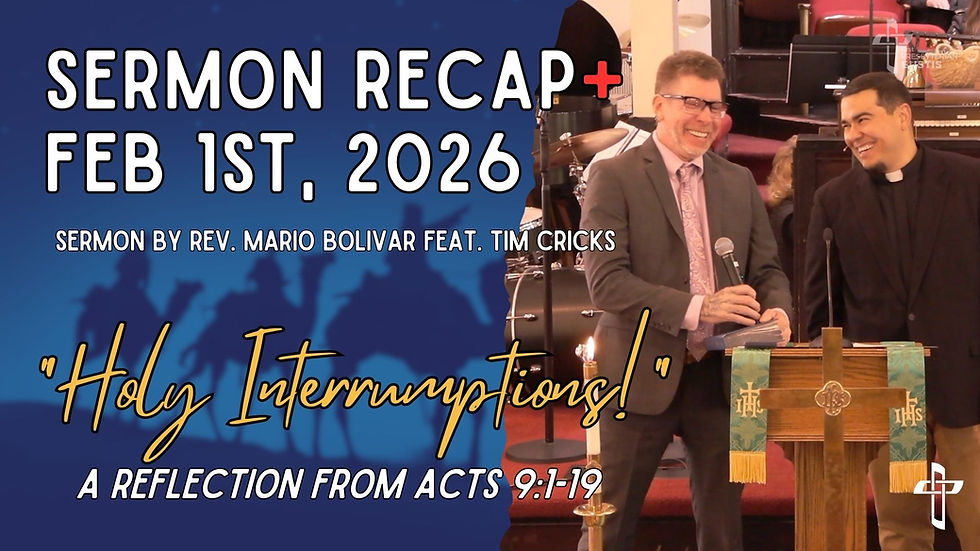New Bible Study "Micah"
- Mario Bolivar
- Oct 10, 2022
- 2 min read
Updated: Oct 17, 2022
Why Micah (Minor Prophet)?! Because we need to consider repentance and know hope! Especially H.O.P.E. See, Micah teaches that the sins of the leaders of Israel would result in the destruction of Jerusalem (see Micah 3:5–12). However, Micah also eloquently stated that Heavenly Father hears the prayers of His children and that Jesus Christ is an advocate for and a light unto all (see Micah 7:7–9). Micah further praised God, saying that Jehovah “pardons iniquity” and “does not retain his anger forever, because he delights in mercy” (Micah 7:18). Through this contrast of themes, students can learn about both the Lord’s disdain for evil and His mercy for those who return to righteousness.
Bible Study Begins on October 11th and ends on November 29th.
*No Bible Study on November 22nd because of Thanksgiving Break.
Tuesday at 7 am online only on Facebook or by Zoom.
Why Minor Prophets?
The name "Minor Prophets" goes back apparently to St. Augustine, who distinguished the 12 shorter prophetic books as prophetae minores from the four longer books of the prophets Isaiah, Jeremiah, Ezekiel, and Daniel. So, the whole thing is about size.
Who wrote this book?
Although we do not know who wrote this book, the book contains the prophecies of the prophet Micah. Micah was from Moresheth-gath, a small rural town in the kingdom of Judah (see Micah 1:1, 14).
When and Where was it Written?
We do not know when the book of Micah was written or compiled in its current form. According to Micah 1:1, Micah prophesied during the reigns of the kings Jotham, Ahaz, and Hezekiah of Judah, who ruled from about 740 to 697 B.C. Therefore, he was likely a contemporary of the prophets Amos, Hosea, Jonah, and Isaiah. Micah addressed his words to the kingdoms of Judah and Israel.
What are some distinctive features of this book?
Micah ministered during a time when the people of Israel were thriving economically but suffering spiritually (see Thomas E. McComiskey, “Micah,” in The Expositor’s Bible Commentary, ed. Frank E. Gaebelein, 12 vols. [1976–1992], 7:395).
This environment allowed the upper class to place increasing burdens upon the lower class.
Micah was particularly concerned with the oppression of the poor by the wealthy, and he counted this injustice among Judah and Israel’s greatest sins. Micah’s origins from a small town may have given him special sensitivity to the concerns of the poor rural people of the land. Micah is the only book in the Old Testament to name Bethlehem—a town “little among the thousands of Judah” (Micah 5:2)—as the place where the Messiah would be born.
Like the teachings of the prophet Isaiah, many of Micah’s teachings are written in the style of Hebrew poetry. Micah’s prophecy of Jerusalem’s destruction was remembered many years later during the time of Jeremiah (see Jeremiah 26:18).





Comments